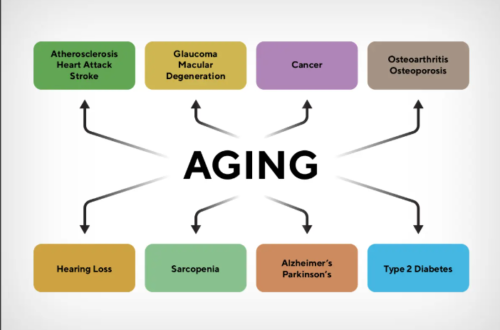For the longest time, menstruation has been hidden in mystery, a disgrace, and silence. many women and girls have been forced to suffer in silence, hiding their symptoms and struggles behind closed doors. but it’s time to break the stereotype and gain knowledge about menstrual wellness.
- Phase 1: Menstruation (Days 1-5)
- Phase 2: Follicular Phase (Days 6-14)
- Phase 3: Ovulation (Day 14)
- Phase 4: Luteal Phase (Days 15-28)
In this blog we’ll take a closer look into the world of menstrual wellness, exploring the physical, emotional and mental aspects of menstruation. We’ll also discuss about the importance of prioritizing menstrual health, expose the common myths and taboos, and provide practical tips and strategies for embracing a healthier cycle.
Table of Contents
Let’s Understand Menstruation:
Menstruation is a natural process that is experienced by women and girls of reproductive age. It is a sign of fertility, and a reminder that their bodies are capable of incredible things. But menstruation can also be a source of discomfort, pain and anxiety. Many women experience symptoms such as cramps, bloating and mood swings that can affect daily life.

The Physical Aspects of Menstruation
*Menstruation is a natural and important part of life of women and girls. It’s a sign of fertility, health and vitality. However, for many, menstruation can be a source of discomfort, pain and anxiety.
Common physical symptoms related to menstruation includes:
- Cramps and pain in pelvic region
- Bloating and water retention
- Fatigue and feeling lethargic
- Heavy bleeding or blood clotting
- Nauseous and vomiting

These symptoms usually can be mild to severe and can have a larger impact on our daily life. However, there are many ways to maintain and alleviate these symptoms, which we’ll see later in this blog post.
We should prioritize our physical wellbeing for better menstrual health. Below are given some practical tips we can follow to manage physical health during menstruation.
- Keep track of Nutrition: By eating a balanced diet which is rich in whole foods, fruits, vegetables, and whole grains, you can reduce the symptoms.
- Stay hydrated: Drinking plenty of water helps to reduce bloating and pain of cramps.
- Exercise regularly: Try to do exercise on a regular basis, it can help to reduce symptoms and can improve your overall health.
- Get proper sleep: Geeting proper and enough sleep (7-8 hours) can help you to regulate hormones and have reduced fatigue, so you don’t feel lethargic.
The Emotional and Mental Aspects of Menstruation
Menstruation is not only just a physical experience but also affects us emotionally and psychologically deeply. Many women experience a wide range of emotions during their cycle, including:
- Anxiety and Stress
- Mood swings and Irritability
- Sadness and depression
- Anger and frustration
These emotions can sometimes be very intense and overwhelming, which can affect relations, work and even day to day life. However, by addressing and acknowledging these emotions, we can develop healthier coping mechanism and improve our overall wellbeing.

Menstruation can have significant effects on our emotional and mental wellbeing. Given below are some tips for managing emotional and mental symptoms:
- Keep tracking your mood: By keeping a mood tracker you can identify patterns and your trigger points.
- Stress management: Try to practice stress-reducing techniques like meditation, yoga or deep breathing that can help you to reduce stress during this time.
- Doing Self-Care: Try to engage yourself in activities that you enjoy and helps to relax, such as reading, listening to music, or taking a hot water shower.
Tips to Improve Menstrual Health:

Making menstrual health your priority is very important for overall well-being. Given below are practical tips about how you can manage menstrual health:
- Always keep track of your menstrual cycles it can help to identify patterns, predict periods, and detect if there’s any health issue.
- Try to use comfortable, breathable and eco-friendly products to improve your menstrual experience.
- Try to practice menstrual hygiene, like changing you sanitary napkin or tampons regularly due to which infection can be prevented.
- Get regular checkups which helps to detect potential health issues, such as polycystic ovary syndrome (PCOS) or endometriosis.
- You can also understand about it in a Comic book named Menstrupedia. It is written by a menstrual educator Aditi Gupta. Who has made understanding menstruation easy by her writing skills in a very friendly way. She was once told that ‘People are ashamed to talk about periods”, but by her books she is proving that is not something to be ashamed of. The lack of knowledge about menstruation among people made her do deeper research about it.
Few natural remedies to be eased during this time:
- Herbal teas: Drink herbal teas like chamomile or peppermint they help to calm your cramps and anxiety.
- Essential Oils: Use of essential oils such as Lavender can help to reduce stress and relaxes your mind.
- Heat Therapy: Applying heat to the lower abdomen can help to ease your cramps and pain.
Breaking the stereotype:
Menstruation has a lot of stereotypes around it. But it’s high time that we break all this stereotypes and challenge them. Given below are some ways by which we can promote wellness about menstruation:
- By having encouraged and open conversation about menstruation can help to break stereotypes.
- by educating others about menstruation and menstrual health, this can increase understanding and empathy.
- By making people understand about menstrual equity and access to menstrual products.
Conclusion:
Menstrual wellness isn’t just about managing symptoms; It’s about prioritizing your health and well-being. By understanding the physical, emotional, and mental aspects of menstruation and prioritizing menstrual health, you can take control of your menstrual journey and thrive.
Remember, menstruation is a natural and necessary part of life. It’s time to break the silence and change the stereotype surrounding this. Let’s promote menstrual wellness and equity for all.
Read another article about How to create resolution for new year
Follow us on








One comment on “The Lunar cycle: Navigating Menstruation Mindfully in 2025”